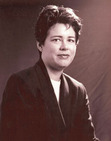Moody and Broody
Here on the prairie, spring weather has been wild and crazy–much as usual. Fierce winds have buffeted us day and night lately. Last night, the wind blew around the corners of my house and tossed the newly leafed shrubbery and trees. Something–probably the iron structure supporting the bird feeder that’s slowly listing to one side like the leaning tower of Pisa–was creaking outdoors. The jolly string of wooden Easter eggs on my front door clacked steadily against the glass storm door. Night noises all around, never dying away for the stillness of sleep and tranquility. Things going bump in the night.
At one point I looked out the back door, and saw a full moon halfway above a thick bank of clouds to the east. It was an odd sight, very eerie, and seeing the moon like that immediately sparked inspiration. My imagination danced. What if? What if?
So … do you consider mood and atmosphere when you write fiction? When you’re devising your setting, do you incorporate ambiance?
In making setting vivid to readers, the atmosphere is important. After all, it’s hard to maintain a tense, suspenseful tone if you’re describing bright pastel colors and teddy bears and the cheerful sounds of children’s laughter.
You shade reader perception through the tone you adopt and maintain. You affect reader emotions, and stir reader imagination, through the diction of your story. What is diction? The words you choose to use. It’s all about vocabulary and making it work for you.
Consider the following words that have similar meanings but different connotations:
dim ………………………………..gloomy
large ………………………………cavernous
teeth ………………………………fangs
reddish …………………………..bloody
pointed leaves …………………spiky leaves
shy …………………………………withdrawn
Or these:
dim ……………………………….candlelit
large ……………………………..spacious
teeth …………………………….gleaming smile
reddish …………………………vermillion
pointed leaves ……………….palm fronds
shy ………………………………hesitant
Shading your diction or word choice to fit your story setting and its genre is also known as writing in coded language. Readers of certain genres expect writers to employ a vocabulary that suits the genre. Such word choices in turn connote more to avid readers of that genre than they might otherwise to a more casual audience.
Accordingly, romance readers expect settings to be described in ways that evoke the physical senses, are attractive or possibly glamorous, and convey a romantic atmosphere.
Thriller/mystery/horror readers expect settings to hold a sense of danger and to be edgy. Therefore, a poorly lit room might seem romantic in one genre but a dangerous trap in another.
Fantasy readers expect settings to be magical, unusual, exotic, and surprising.
Writers who take the time to enhance their stories with coded imagery–to set the mood appropriate to their plot, location, situation, and scene–add considerably to the overall effect. Consider the stories of Edgar Allen Poe. They ooze dank despair. Consider the Harry Potter series by J.K. Rowling which enchant and charm on every page. Consider the romantic story The Wedding Dress by Virginia Ellis, in which three sisters distract themselves from the bleak economic hardships immediately following the Civil War by hand-sewing a wedding dress, hoping with every button and every stitch that once the gown is completed a bridegroom will appear for at least one of them.
Now of course, there are some writers who want to play against type. They want to contrast the bright, cheery nursery with a grim crime scene down the hall in the master bedroom. They want to show an empty crib, a dropped teddy bear, and the bloody handprints on the wall going down the stairs. Such writers aren’t ignoring atmosphere or coded language. They are instead making it work for them in a different way, to surprise and stress readers deliberately. Such contrasts create atmosphere effectively.
Whether you set up straightforward mood or go for a contrast, be aware of your setting and make it work harder for your story’s success.


C. Aubrey Hall's Blog
- C. Aubrey Hall's profile
- 7 followers



